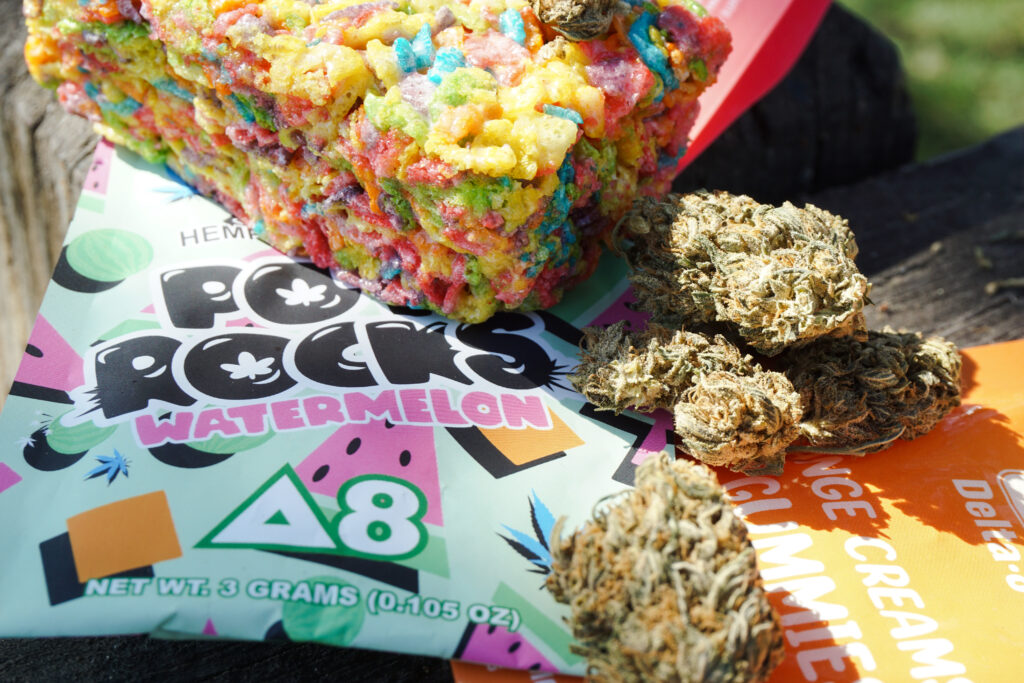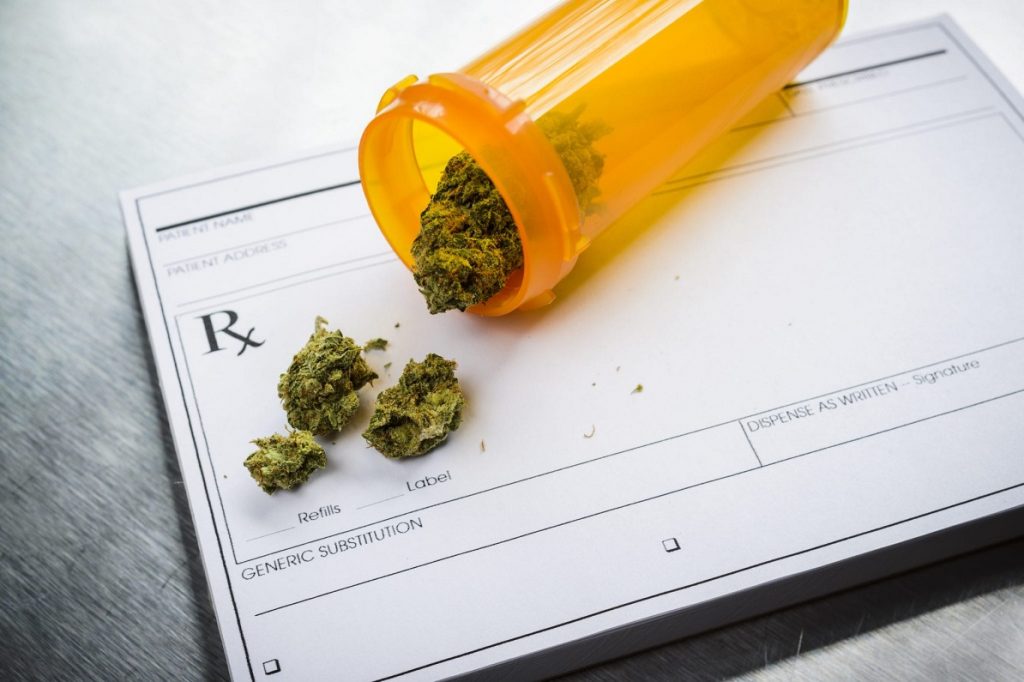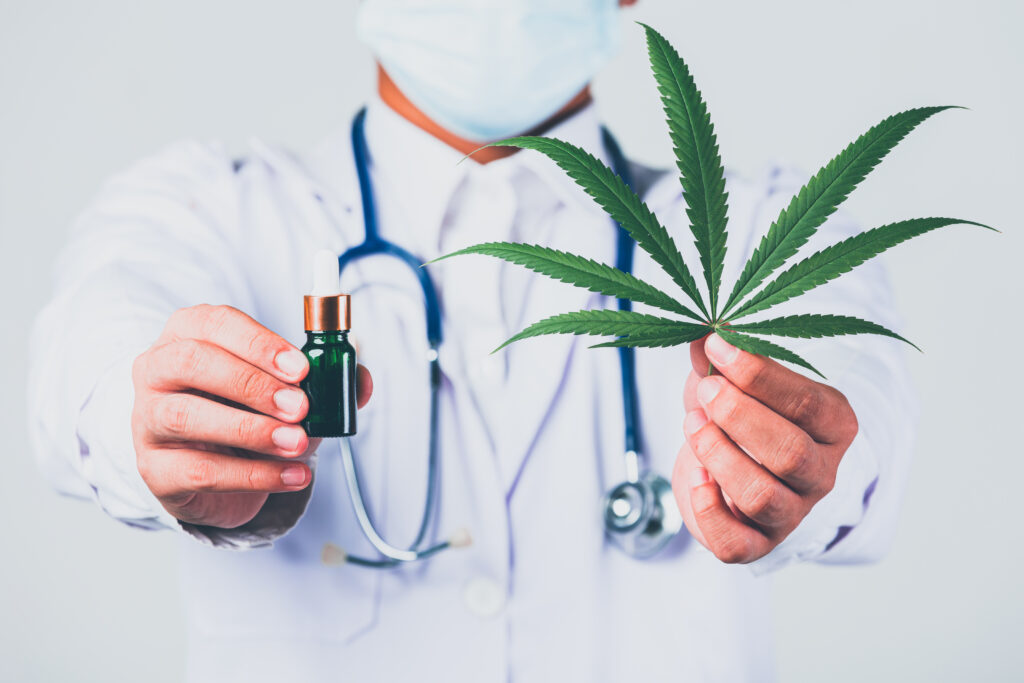If you are a hemp consumer, you probably take CBD. Cannabidiol is the supportive powerhouse that changed the game for hemp—breaking down associations to the flower’s rebellious cousin and paving the way for the plant as a mainstream wellness substance.
From beauty and skincare to supplements, beverages and food, CBD has been having a moment for a while now. And with it, the rise of many other hemp-derived cannabinoids, such as CBG and CBN. But there have been others thrown in the mix with an edgier flare, hemp cannabinoids that blur the lines between supportive and recreational. We are talking about alternative cannabinoids, of course!
Although we give each type of cannabinoid we carry its own post, we know convenience is king, so here is an overview of alternative hemp cannabinoids, what they’re all about, and which products we carry. Think of it like your own personal study guide for a test you never have to take.
Delta 9
Although technically not alternative, this is still the OG rebel, the notorious cannabinoid that needs no introduction. However, many people don’t use it by its full name. Delta-9 THC is the tetrahydrocannabinol (THC) that people are typically referring to when they use those three letters. Whether it comes from hemp or marijuana, Delta 9 is what it is. For that reason, it is the type of THC explicitly regulated in the 2018 Farm Bill. We mention it, because it is important not to confuse it with Delta 8 or 10.
All hemp products must have less than .3% Delta 9 to be compliant. As such, all of our products, including our full spectrum CBD goods, adhere to said regulations.
Delta 8
Delta 8 is the most well-known and prized alternative cannabinoid to hit the hemp scene, due to its recreational attributes and lack of federal regulation (for now). If a Delta 8 product contains less than .3% Delta 9, it is Farm Bill Compliant. Some folks have argued this is a technicality, with some states limiting or banning Delta 8 sales. But it remains a grey area federally.
A type of THC with a carbon on its 8th bond instead of its 9th, Delta 8 is approximately half as potent as Delta 9, which only matters if you’re comparing them side by side, milligram to milligram. Be warned: Many high potency Delta 8 products cause feelings of intoxication.
Additionally, it should be noted that while some may choose to enjoy Delta 8 recreationally, it is so much more than that! It may offer its own supportive properties that folks find beneficial—from finding calm and sleeping well to lifting mood. User-reported feedback has been positive, although formal research is ongoing.
Delta 10
Another type of THC, Delta 10 is less potent per milligram than both Delta 9 and Delta 8. Like Delta 8, it occurs in much smaller amounts in hemp and is more difficult to extract in bulk. Among its many features, Delta 10 tends to have a more sativa vibe, with users reporting uplifting and alert sensations. Like Delta 8, this type of THC is not explicitly regulated in the 2018 Farm Bill, although state-level regulations may apply.
HHC
HHC is one of the newer alt cannabinoids on the block. Hexahydrocannabinol (HHC) is typically derived from hydrogenating natural cannabis extracts.
Unlike the Deltas, HHC isn’t THC, nor does it contain THC of any kind. This is a remarkable thing, considering it does exhibit similar effects to Delta cannabinoids. Milligram to milligram, however, it is less potent than Delta 8. So one may only “feel it” with high potency products. That said, there is no set dosage amount, as like other hemp products, it is not regulated by the FDA.
THC-O
Although it has been around for decades, it is only now gaining recognition as the newest alternative hemp cannabinoid to hit the scene. This one packs a serious punch, with some calling it the psychedelic cannabinoid. THC-O, or THC-O acetate, is approximately three times stronger than Delta-9 THC. Yes, you read that correctly.
It is, as of now, also 2018 Farm Bill Compliant as long as it is derived from hemp and contains less than .3% Delta 9. There are some caveats to this cannabinoid, however.
First, its longterm effects have not been studied enough. Second, its immediate effects aren’t felt until it is metabolized—so expect a 20 – 30 minute delay or so. Finally, it can be dangerous to manufacture, as it requires processing cannabinoids with volatile materials. It is not recommended for DIY enthusiasts. Buy premium from a trusted source. Don’t make your own.
Our conclusion
Like CBD, alternative cannabinoids are not FDA approved or regulated. It is important to remember that research is ongoing and that legalities are ever-changing. Only buy from trusted sources. Canna River adheres to all regulations and only sells 2018 Farm Bill Compliant products to adults 21 and over in states in which the sale and use of alternative cannabinoids are allowed. Please use your own discretion when purchasing and consuming alternative hemp products.





